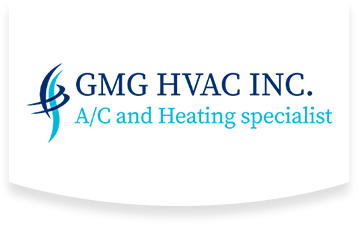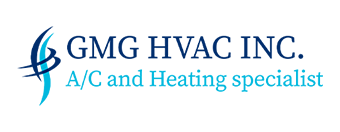The air filter in your HVAC system is a crucial component in both the air quality in your home and the longevity and efficiency of your furnace. And yet, this piece of your home’s HVAC system is often overlooked, forgotten, or plain old neglected.
In today’s blog from GMG HVAC Inc., we will discuss the ins and outs of what your HVAC air filter does and how often you should change it, providing you with simple, but invaluable, information about your home or business heating and cooling system. To learn more about air filters or to schedule a service for your HVAC unit, call us or fill out our online form.
What Does My HVAC Air Filter Do?
We all understand the concept of an air filter, but in what specific ways does it help your HVAC system? First and foremost, the air filter is the first defense against debris that can clog or damage your heating or cooling unit, and it is also the first line of defense against allergens like dirt, pollen, pet dander, and more.
When air is drawn through the filter on your HVAC unit, small particles are caught in the filter, leading to cleaner air for you and your family, and greater airflow for your HVAC system. That translates to a higher level of efficiency when keeping your home or business comfortable.
What Are The Risks Of Not Changing My Air Filter?
Increased Utility Expenses
A dirty air filter can lessen the airflow to your system or even cause debris buildup within it. All of this can lead to higher than normal operating costs which can add up over time.
Trouble Maintaining An Ideal Temperature
Unnecessary stress on the fan motor due to dirt buildup in your heating unit can lead to your HVAC system struggling to correctly distribute air throughout your home. Warm and cool zones, as opposed to a uniform temperature throughout the house, are a sign of this.
Chance Of A System Failure
Too much debris in your heater or air conditioning unit can lead to malfunctions and breakdowns. Keeping a clean air filter is an important part of maintaining the health of your HVAC system.
Lowered Air Quality
A dirty filter will catch fewer particles than a clean one, plain and simple. But more than that, a dirty air filter can become home to mildew, bacteria, and even mold, which can then be sucked into your HVAC system and blown all over your home, increasing allergies and even causing long term health concerns if the neglect has taken place long enough.
Dirty Air Ducts
As your unchanged filter continues to deteriorate, more and more particles will find their way into your heater. From here, they will be deposited into your ducting system, meaning that even when you finally do change your filter, your HVAC system will still be blowing dirty air into your home.
How Often Should I Change My Air Filter?
Different types of HVAC systems require a different frequency of filter changes. Many Americans change their filters twice per year. Once before they turn on the heat in the fall and again before they turn on the air conditioning in the spring or summer. In reality, most air filters should be changed every 60 days or more often.
Contact GHG HVAC For All Your HVAC Needs
For specific information on how often your air filter should be changed, to get help changing it, or to consult with us on any other heating or cooling questions or problems, contact GMG HVAC Inc. today. We look forward to serving you.








